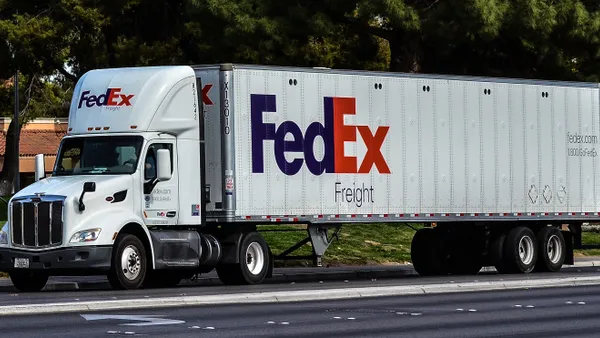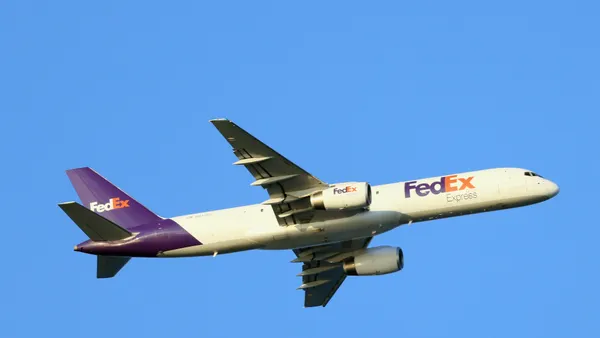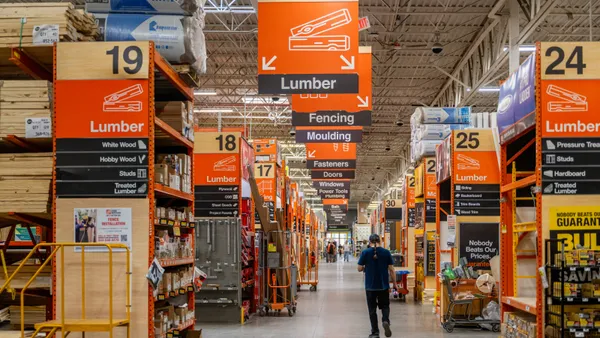Dive Brief:
- The logistics industry in the U.S. is overwhelmingly optimistic about the economy over the next quarter, according to a survey conducted by TCompanies of 175 logistics and transportation industry managers and executives.
- The majority of logistics and transportation businesses surveyed believe hiring at their company, as well as revenues and profits, will increase. Three-quarters of respondents (74.86%) expect revenues to increase next quarter, with only 6.29% expecting revenue to fall.
- Logistics industry leaders cited a workforce shortage as the largest obstacle to growth, followed by regulatory issues and trade tariffs.
Dive Insight:
Most U.S. economic data points to a healthy economy. Unemployment has fallen to 3.9%, one of its lowest levels in the last decade, and the Purchasing Manager's Index (PMI), measured by the Institute for Supply Management, reached 58.1% last month. Any figure above 50% indicates an expansion in the manufacturing economy.
For the logistics and transportation industry in particular, business is booming with high demand for logistics and freight services. With strong business growth, it follows logically why the industry views the economy and the future outlook in a positive light.
"It's completely a carrier's market right now," Josh Brogan, vice president at A.T. Kearney, told Supply Chain Dive. "Some of our shippers are complaining about odd situations where carriers are basically refusing to bid on annual tenders and saying 'we'll take care of your business but through the spot market.'"
Though July posted a dip in spot market volumes, availability landed higher than many expected and spot market loads are still up 45% year over year, according to DAT data.
"Going forward, rate trends are likely to follow a normal seasonal pattern, but at a level that’s 25 to 30 percent higher than in 2017," DAT pricing analyst Mark Montague said in a statement.
While logistics providers and carriers are reaping the benefits of a supply-demand imbalance, most shippers "view this in the other direction," Brogan said. Consumer goods companies are seeing high inflation and cost increases but not a significant increase in demand for their products.
Some shippers have indicated they may have to pass higher costs on to consumers by increasing the price of their goods, although for some that's difficult given the nature of their products and highly competitive markets that push prices down.
The high transportation costs, however, won't be enough to dissuade shippers from putting their products on shelves, Brogan said. Transportation is typically less than 5% of the total cost of goods. "It's always going to be a positive overall to continue to ship, regardless of what the transportation cost is."














